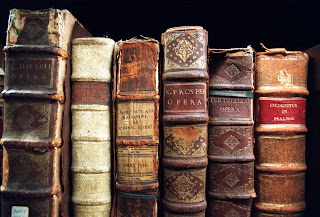
Some of my faves from the past three months:
* Out of the Saltshaker (Pippert). I never actually read this classic after all of these years of being a Christian, so I thought it would be good to actually read. A little too chipper and suburban for my taste, but still a good read.
* Woe is I (O'Conner). A helpful and witty little primer on grammar. I found myself saying, "oops, I've been saying it wrong all these years" a lot.
* Neither Here Nor There (Bryson). Bryson consistently makes me laugh out loud. This account of his jaunt through Europe, a retracing of a previous trip he did when he was much younger, was no different.
* Silent Spring (Carson). The "Inconvenient Truth" of the 1960's. She sure does pound on the issue of pesticides. (I think I was hoping for broader coverage on environmental issues.)
* Sexual Personae (Paglia). Her unified theory of art and lit is deliciously sharp. Sadly, most of it went way over my head; I am simply not at all well-versed when it comes to the classics like Dickinson and Blake and Shakespeare and Wordsworth.
* Taming the Tiger (Rybcynski). It was apt to read this book, about whether we control technology or technology controls us, right before I became a smart phone owner.
* Mine Eyes Have Seen the Glory (Balmer). This look at evangelicalism in the US is insightful, although too often skeptical, dismissive, and unbalanced.
* Structure of Scientific Revolutions (Kuhn). Think "Tipping Point," but not as smoothly written as Gladwell and applied solely to the advance of science. If I knew more about basic science (I drew a blank on physics) and scientists (I should know more about Newton and Galileo than what I do), I think this book would have been more pleasurable to read.


2 comments:
Bryson is one of my favorites. I've been thinking lately about his words about Philadelphia from his late-80's trip through America entitled "The Lost Continent." He said: "No other city in America pursues the twin ideals of corruption and incompetence with such enthusiasm."
He had good things to say, too, but there's a lot that shows how desperate the city was then. Lately though, with all of the news this summer about corruption and incompetence in city government, I have been wondering how far we have really come.
Nicholas - Corruption is the fee we pay for our political culture, a fee we are actually fairly willing to pay most of the time. When we get cranky is either when 1) the corruption gets out of hand, or 2) economic times are bad and we get stingier. Now is both at the same time. That's why we're so cranky now.
Post a Comment